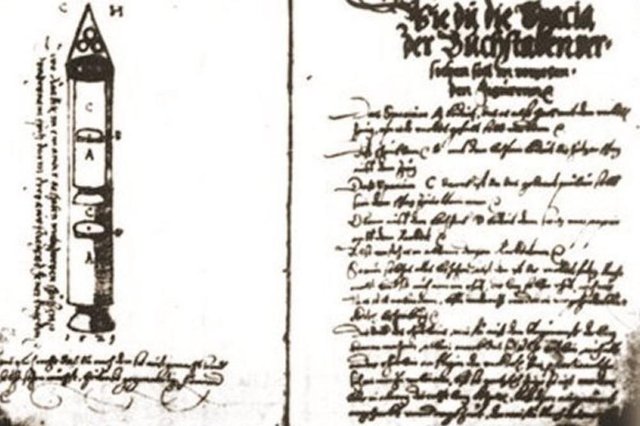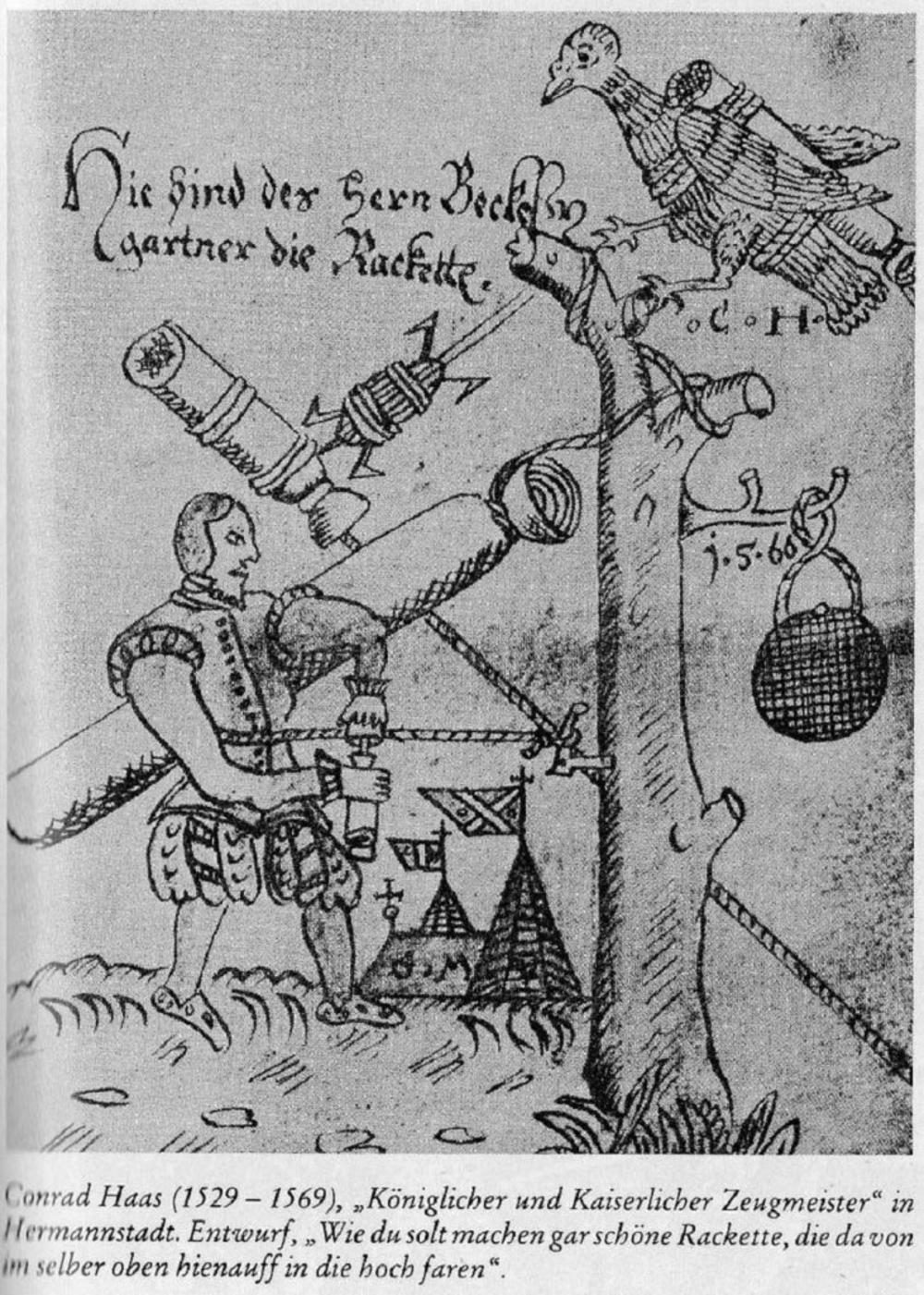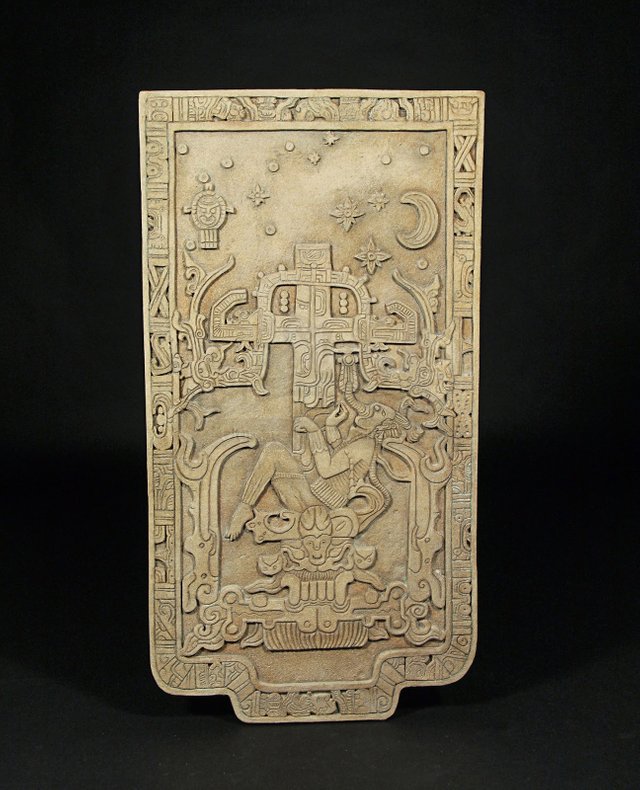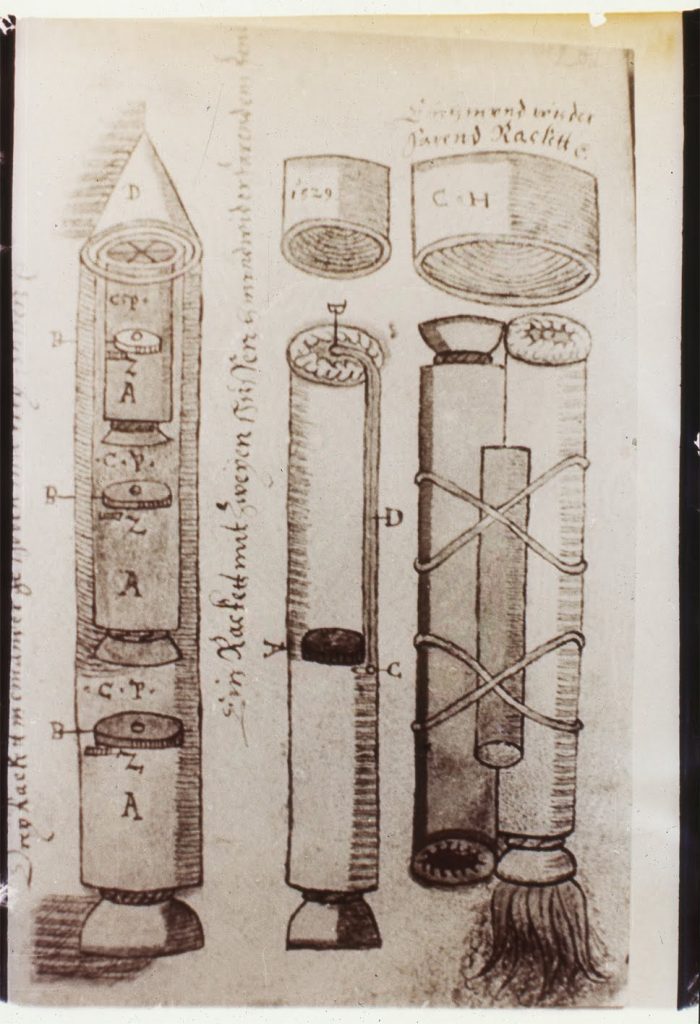
The Sibelius handwritten, which was discovered in 1961, is a collection of about 450 pages in which, among other things, it is possible to see a draft of a three-tier missile and crew flights.
Today we like to think that the flourishing of a civilized civilization began in the mid-20th century, but some evidence suggests that this is not the case. In fact, most of the world's population is not even aware of the fact that there are countless ancient manuscripts scattered around the globe, describing what at first glance seems so incredible that almost the opinion that this is a fraud is almost impossible.
Can you believe that there is an ancient manuscript over 500 years old, precisely describing a liquid rocket, multistage missiles, and even crewed aircraft?

Most would agree that it was a false news or, at best, a misinterpretation.
Nevertheless, Siberian manuscript is real and it is precisely in it, among other things, that a multistage rocket and a rocket on liquid fuel is described. It was officially published in the 16th century, although many believe it was compiled using even older texts.

Siberian manuscript in 1961 found Dora Todericiu, a professor of science and technology at the University of Bucharest. The manuscript contains about 450 pages found in the archives of Sibin in Romania.
To the surprise of Todericiu, this ancient text was flooded with drawings and technical data on artillery, ballistics and detailed descriptions of multistage missiles.

Since then it is believed that this ancient text was written by a man named Konrad Has, between 1550 and 1570. He is believed to have been a military engineer working for the Kingdom of Hungary and the Principality of Transylvania. Siberian manuscript, fully written in German, talks about the construction of various types of weapons, including for the first time in history and multi-stage rocket technology.
It is not known whether Has succeeded in designing and applying it in practice, but there are individuals who claim that the rocket was launched in Sibin in 1550, but there is no documentary evidence that confirms these claims.
From the history we know that Johan Schmidlap, the Bavarian 16th-century fireworks producer and rocket pioneer, was the first to experiment with two-stage and three-step rockets in 1590.
Konrad Has also written several striking sentences in his handwriting when it comes to the military use of the rocket:
"My advice is to have more peace, not war, to keep rifles calmly in the warehouses, so that the bullet does not fade and the gunpowder does not burn."
thanks for the vote , and this vote for you
Downvoting a post can decrease pending rewards and make it less visible. Common reasons:
Submit
Very interesting read.. I enjoyed the information. As a history enthusiast I cannot say I am surprised. It is well known that ancient civilizations were more advanced than we are (comparatively speaking).
For example, the Egyptians were well versed in aerospace as illustrated from carvings on pyramids depicting helicopters, blimps, even futuristic flying crafts that appeared in a Star Wars movie!
The gist of it all comes down to one, "can we use this technology?" Back in the early 1920's Germany certainly thought so. Many of the modern day tomb raiders were sent by Hitler. It is disputed by historians but many have speculated that Germany's advanced rocket engine program relied heavily on texts and manuscripts stolen from Egyptian Tombs.
Closer to home, India has suggested that technology used by NASA was predicted by ancient Sanskrit. How valid these accusations are depends on a plethora of variables. The rabbit hole is deeper than we all think.. How far we go depends on how much we truly want to know.
Anyways, I enjoy reading about this kind of stuff. My friends think I go overboard sometimes but on a platform such as this its refreshing to find precious nuggets of resonating topics.
"The truth is out there..."
Keep up the great work! I'll look out for additional work from you
Downvoting a post can decrease pending rewards and make it less visible. Common reasons:
Submit